IE Mindset
Innovation and Entrepreneurship Mindset
As part of its 2017-2022 Strategic Plan, Algonquin College committed to fostering a mindset of innovation and entrepreneurship in all of its learners. With the changing nature of work, employers are looking for people who are not just skilled in their profession, but are also innovative, creative, and can solve problems.
The Innovation and Entrepreneurship Committee has worked to develop a set of competencies, based on existing frameworks and literature, that can support such a mindset with the purpose of providing a starting point for thinking about how an Innovation and Entrepreneurship (IE) Mindset will impact learners at the College.
Consultation is currently ongoing. Click below to fill out the survey:
Our Goal
To embed an innovative and entrepreneurial mindset in Algonquin’s family of learners*, enhanced by Indigenous Knowledge.
*Learner is a broad term used to indicate the subject of lifelong learning. It refers to all Algonquin College community members; AC students (FT/PT/ONLINE), employees and community members.
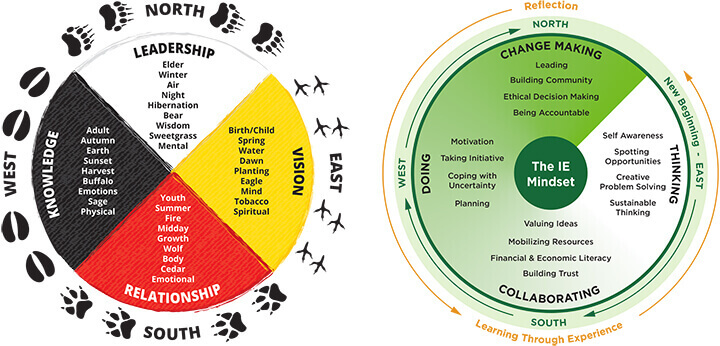
Our learners are diverse and have a wide array of interests, goals, and passions. Algonquin College wants to instill ways of thinking entrepreneurially and as innovators in our learners, through the development of innovation and entrepreneurship competencies. In practice, this means helping our learners to see their communities, their professions, and themselves in different ways. We want to empower our learners to spot opportunities—whether economic, social, or cultural—and come up with creative solutions on which they can follow through. We want our learners to be able to engage proactively as positive forces of change and leadership.
IE Mindset Validation Survey
Based on existing frameworks of entrepreneurship competencies and innovation skills, the Innovation and Entrepreneurship Committee is proposing the following model as the basis of the IE Mindset. This model is meant to be a starting point for consultations with the Algonquin College community to determine its validity (i.e. Do you think that this model accurately reflects the competencies of an innovation and entrepreneurship mindset?) and relevance (i.e. Do you think these competencies are relevant to learners in your school/program?).
Consultation is currently ongoing. Click below to fill out the survey:
Definitions for the IE Mindset Competencies
IEMindset_Competencies_Definitions
Thinking (East)
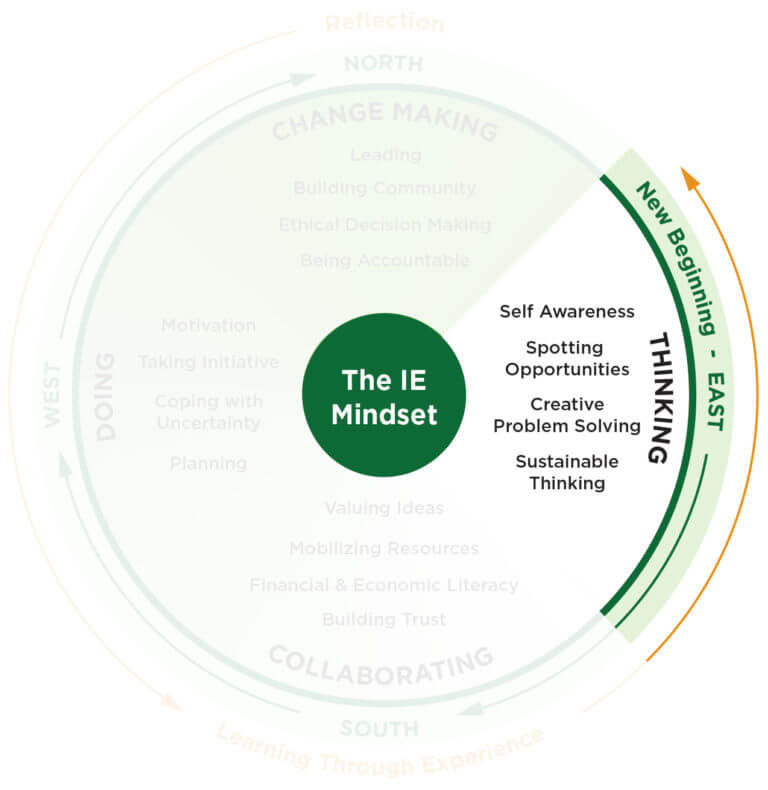
| Self-Awareness Believe in yourself and keep developing |
|
| Spotting opportunities Use your imagination and abilities to identify opportunities for creating value |
|
| Creative problem solving CPS is a way of identifying opportunities when conventional thinking has failed. Find fresh perspectives and come up with innovative solutions to formulate a plan to overcome obstacles and reach your goals. |
|
| Sustainable thinking Impact of ideas, opportunities and areas |
|
Collaborating (South)
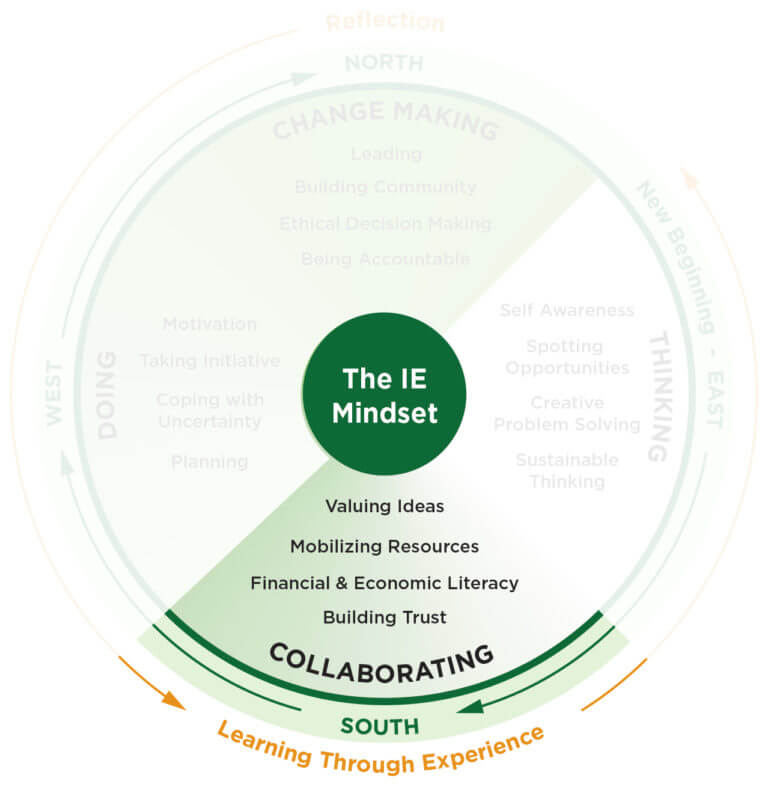
| Valuing ideas Make the most of ideas and opportunities |
|
| Mobilizing resources Get and manage the material, non-material and digital resources needed to turn ideas into action |
|
| Financial and economic literacy Plan, put in place and evaluate financial decisions over time |
|
| Building trust Build relationships |
|
Doing (West)
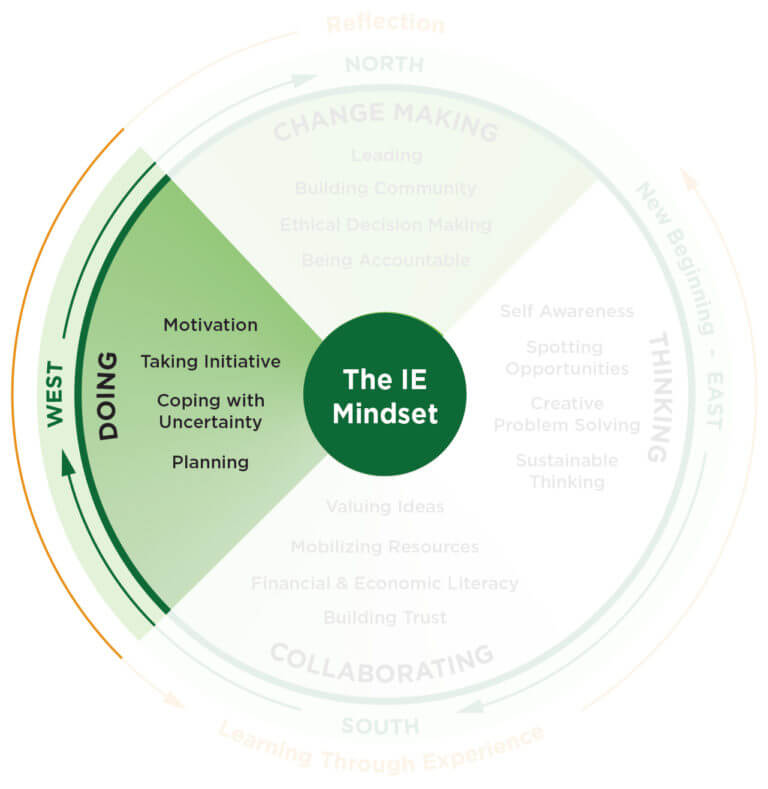
| Motivation Turn ideas into action and satisfy your need to achieve |
|
| Taking initiative Initiate processes that create value |
|
| Planning Set long-, medium- and short-term goals |
|
| Coping with uncertainty Make decisions when the result of that decision is uncertain, when the information available is partial or ambiguous, or when there is a risk of unintended outcomes |
|
Change Making (North)
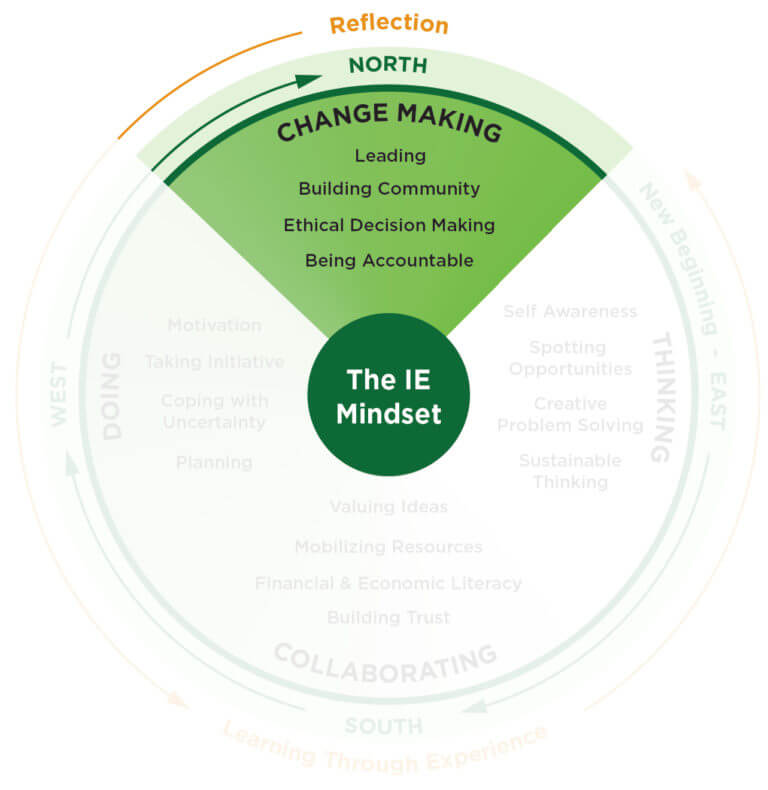
| Leading Lead change and improvement to benefit community. |
|
| Building Community Build a culture |
|
| Ethical decision making |
|
| Being accountable Takes responsibility for all work activities and personal actions |
|